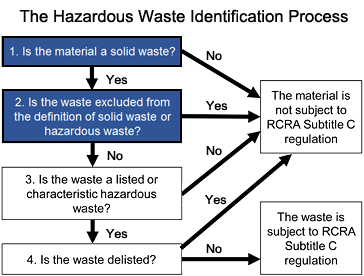The Best Guide To Reclaim Waste
The Best Guide To Reclaim Waste
Blog Article
Reclaim Waste - Questions
Table of ContentsReclaim Waste for DummiesSome Known Details About Reclaim Waste The Ultimate Guide To Reclaim WasteThe Best Strategy To Use For Reclaim WasteThe Single Strategy To Use For Reclaim Waste
With proper liquid waste management, firms can minimize energy-intensive treatment procedures and disposal costs. By following a system for handling fluid waste, business can avoid costly fines and fines and prevent unfavorable attention.(https://www.slideshare.net/leonaube33101)Gather depictive examples from different points within the waste stream to ensure accuracy. Liquid waste, especially dangerous ones, poses considerable threats during this action.

Sanitation (e.g., chlorination, ultraviolet light, ozonation) and nutrient removal (e.g., denitrification and phosphorus elimination) are suggested under rigid guidelines. Many business breached a number of liquid waste disposal guidelines in current years.
More About Reclaim Waste

Shallow containers include fluid waste that is enabled to vaporize through natural processes. This kind of disposal is subject to rigorous environmental guidelines due to possibly unsafe discharges.
The findings ought to be documented, evaluated, and kept not just for submission to governing authorities but additionally for making improvements in the future. Usage reputable tools, techniques, and software options to make certain precise and constant information collection. Stay upgraded on relevant ecological policies and industry criteria. Share details with relevant stakeholders (e.g., employees, regulative federal government companies, and close-by communities) to keep openness and accountability.
No matter the company dimension or market, there are countless difficulties linked with this job. Recognizing these can help them properly manage their procedures and decrease their ecological effect. makes it hard to treat and throw away fluid waste safely. Companies that can not purchase facilities ought to consider working together with the public sector for better options.
The smart Trick of Reclaim Waste That Nobody is Discussing
By implementing detailed monitoring systems that consist of therapy and reusing techniques, routine surveillance, threat analyses, and adherence to local and government laws, commercial centers can add to the defense of groundwater products, ensuring their availability for future generations (liquid waste removal melbourne). Let's explore the importance of reliable fluid waste monitoring in the industrial field, concentrating on its ramifications for protecting groundwater resources
The air pollution of groundwater sources due to improper fluid waste monitoring in the industrial market has far-reaching effects for human health, agriculture, and the atmosphere as a whole. Several of the possible impacts triggered by such contamination consist of: Polluted Alcohol consumption Water Materials: As groundwater provides a significant part of our alcohol consumption water, pollution from industrial activities can cause hazardous chemicals and bacteria entering our water systems, presenting health threats for humans.
Reduced Agricultural Performance: Farming depends greatly on groundwater for watering; as a result, polluted water can impede plant yields, pollute farming items, and affect food safety. Given the importance of protecting groundwater resources, it is essential for companies to take a positive stance in handling their liquid waste properly and preventing pollution.
The 4-Minute Rule for Reclaim Waste
Fluid waste can pollute land and contaminate waters. Under the Defense of the Atmosphere Operations Act 1997, organizations that generate fluid waste are called for to handle it in such a way that protects the setting and the community. Information about taking care of and saving liquid waste, reacting to spills and reducing fluid waste is available in the complying with truth sheets and assistance:.
The duty of waste management experts in safeguarding this priceless source can not be overemphasized. Polluted water and polluted effluent monitoring: Ensuring that harmful liquids are securely removed and treated before they can harm our water sources.
Hence, integrating lasting liquid waste administration into economic planning enhances economic security and protects the setting, demonstrating the value of this method. In visit here conclusion, taking on specialist liquid waste management practices is crucial for ensuring a sustainable future, safeguarding our setting and safeguarding the health of future generations.
When it pertains to dealing with waste, sticking to appropriate treatments is crucial for a multitude of reasons. Correct waste disposal is not almost sanitation; it has to do with making sure the health of our environment, health and wellness, and the reliable use of resources. Understanding the value of effective waste administration can aid us all contribute to a healthier, cleaner world.
Reclaim Waste Fundamentals Explained
Effective waste monitoring aids keep tidy streets and public spaces, minimizing the aesthetic influence of clutter and guaranteeing that waste does not hurt wildlife. When waste is not dealt with appropriately, it can cause air pollution, where damaging substances can seep into the soil, water systems, and the air, producing long-lasting environmental troubles.
Report this page